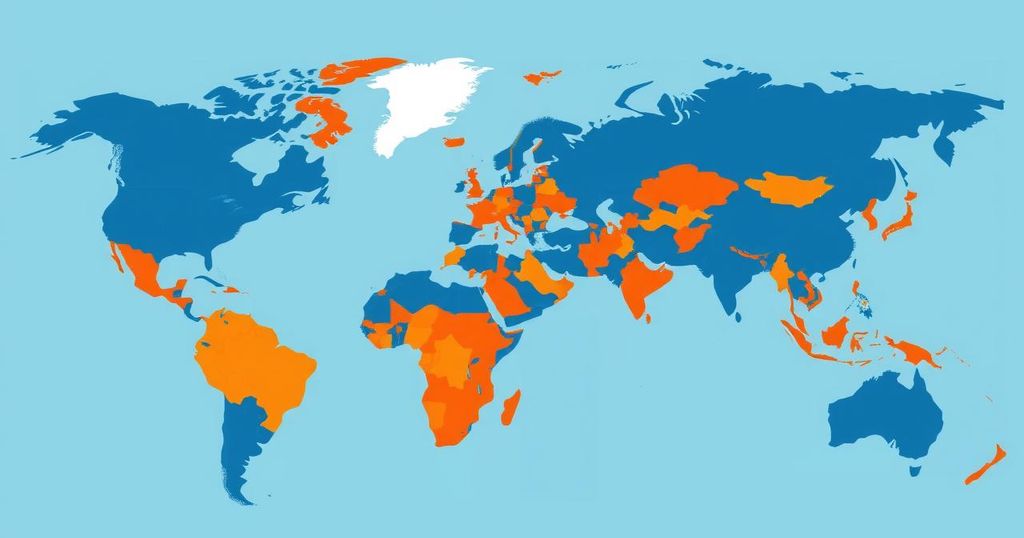Trump Administration Considers Expansion of Travel Restrictions for 43 Countries

The Trump administration is considering expanding travel restrictions for citizens from 43 countries, categorizing them into Red, Orange, and Yellow lists. The proposal is undergoing review, involving multiple government agencies, and could significantly impact international relations and individuals’ travel rights. Legal and ethical implications are reignited as discussions continue about the necessity and morality of such bans.
The Trump administration is reportedly contemplating an expansion of travel restrictions that may affect citizens from up to 43 countries. This proposal, as noted in a report by the New York Times, is undergoing internal review and is broader than the initial travel bans enacted during President Trump’s first term.
The proposed travel restrictions categorize countries into three levels: Red, Orange, and Yellow, with final lists contingent upon ongoing diplomatic and security assessments. The Red List, comprising 11 countries, would impose a complete travel ban on their citizens, including Afghanistan, Iran, and Venezuela among others.
Countries on the Orange List, which contains 10 nations such as Russia and Pakistan, would experience heavy travel restrictions, though citizens may still qualify for certain visa types. In-person interviews would be mandatory for these individuals, reflecting the increased scrutiny.
The Yellow List identifies 22 countries that have 60 days to address specific security and information-sharing concerns to avoid stricter sanctions. Nations such as Angola and Zimbabwe are included here, demonstrating significant variation in terms of risk assessment.
The review process involves officials from the State Department, security experts, and intelligence agencies, who are assessing the accuracy of the deficiencies cited and potential diplomatic repercussions. The proposal’s implications for individuals with existing visas or green cards remain uncertain, alongside the potential impacts on international relations, specifically with countries such as Russia and Venezuela.
The proposal rekindles discussions about the legality and ethics of travel bans. Legal challenges during Trump’s first term led to initial blocks on related bans before a revised version gained Supreme Court approval. President Biden previously rescinded Trump’s travel bans, labeling them as detrimental to national values, yet the need for national security is cited as a reason for revisiting such restrictions in the new proposal.
In conclusion, the Trump administration’s consideration of a comprehensive travel ban affecting 43 countries highlights significant diplomatic and security challenges. With countries categorized into differing levels of restriction, the proposal raises important legal and ethical discussions regarding the implications for individuals and international relations. The ongoing review by various governmental agencies underscores the complexities involved in such a significant policy move.
Original Source: www.financialexpress.com








